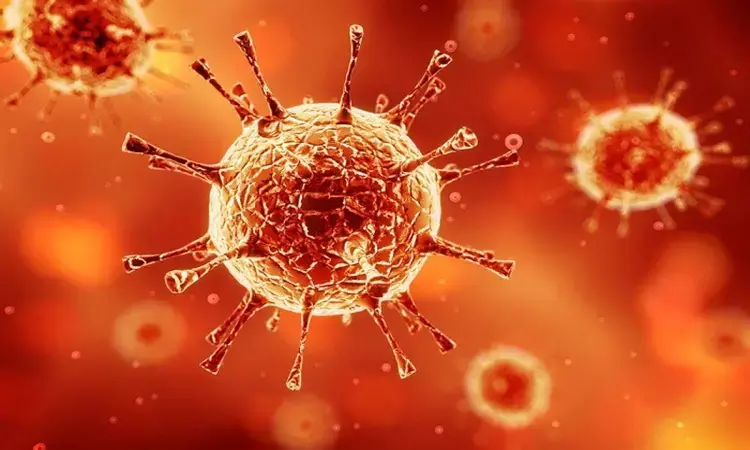- Home
- Medical news & Guidelines
- Anesthesiology
- Cardiology and CTVS
- Critical Care
- Dentistry
- Dermatology
- Diabetes and Endocrinology
- ENT
- Gastroenterology
- Medicine
- Nephrology
- Neurology
- Obstretics-Gynaecology
- Oncology
- Ophthalmology
- Orthopaedics
- Pediatrics-Neonatology
- Psychiatry
- Pulmonology
- Radiology
- Surgery
- Urology
- Laboratory Medicine
- Diet
- Nursing
- Paramedical
- Physiotherapy
- Health news
- Fact Check
- Bone Health Fact Check
- Brain Health Fact Check
- Cancer Related Fact Check
- Child Care Fact Check
- Dental and oral health fact check
- Diabetes and metabolic health fact check
- Diet and Nutrition Fact Check
- Eye and ENT Care Fact Check
- Fitness fact check
- Gut health fact check
- Heart health fact check
- Kidney health fact check
- Medical education fact check
- Men's health fact check
- Respiratory fact check
- Skin and hair care fact check
- Vaccine and Immunization fact check
- Women's health fact check
- AYUSH
- State News
- Andaman and Nicobar Islands
- Andhra Pradesh
- Arunachal Pradesh
- Assam
- Bihar
- Chandigarh
- Chattisgarh
- Dadra and Nagar Haveli
- Daman and Diu
- Delhi
- Goa
- Gujarat
- Haryana
- Himachal Pradesh
- Jammu & Kashmir
- Jharkhand
- Karnataka
- Kerala
- Ladakh
- Lakshadweep
- Madhya Pradesh
- Maharashtra
- Manipur
- Meghalaya
- Mizoram
- Nagaland
- Odisha
- Puducherry
- Punjab
- Rajasthan
- Sikkim
- Tamil Nadu
- Telangana
- Tripura
- Uttar Pradesh
- Uttrakhand
- West Bengal
- Medical Education
- Industry
Dialysis patients have 4-fold greater risk of dying from COVID-19

People undergoing long-term dialysis are almost 4 times more likely to die from COVID-19 and should be prioritized for vaccination, found a new Ontario study published in CMAJ (Canadian Medical Association Journal).
"As the COVID-19 pandemic proceeds, focusedp efforts should be made to protect this population from infection including prioritizing patients on long-term dialysis and the staff treating them for SARS-CoV-2 vaccination," writes Dr. Peter Blake, provincial director, Ontario Renal Network, Ontario Health, and professor, Schulich School of Medicine and Dentistry, Western University, London, Ontario, with coauthors.
The study looked at data on 12 501 patients undergoing long-term dialysis in Ontario between March 12 and August 20, 2020, of whom 187 (1.5%) were diagnosed with SARS-CoV-2 infection. Of these, 53 people (28.3%) died and 117 (62.6%) were admitted to hospital. By contrast, uninfected people who were receiving dialysis during that period had a death rate of 5.8% and a hospitalization rate of 27%. Since this analysis and particularly in the last two months, the number of people on dialysis infected with the virus has risen to over 570 and the number of deaths has increased to 120.
Risk factors for SARS-CoV-2 infection in people on dialysis include hemodialysis at a hospital facility as compared to home dialysis; living in long-term care; living in the Greater Toronto Area; Black, Indian subcontinent and other non-White ethnicity; and lower income.
In addition to vaccination and infection precautions, the authors recommend educating patients about their increased risk of infection and higher mortality, including risks associated with social activities. Paid sick leave should be available for those in high-risk occupations. Other strategies should include a low symptom threshold for testing, more space between treatment stations in dialysis units, and regular testing of high-risk groups, such as those living in long-term care.
For more details click on the link: doi: 10.1503/cmaj.202601
Hina Zahid Joined Medical Dialogue in 2017 with a passion to work as a Reporter. She coordinates with various national and international journals and association and covers all the stories related to Medical guidelines, Medical Journals, rare medical surgeries as well as all the updates in the medical field. Email: editorial@medicaldialogues.in. Contact no. 011-43720751
Dr Kamal Kant Kohli-MBBS, DTCD- a chest specialist with more than 30 years of practice and a flair for writing clinical articles, Dr Kamal Kant Kohli joined Medical Dialogues as a Chief Editor of Medical News. Besides writing articles, as an editor, he proofreads and verifies all the medical content published on Medical Dialogues including those coming from journals, studies,medical conferences,guidelines etc. Email: drkohli@medicaldialogues.in. Contact no. 011-43720751


